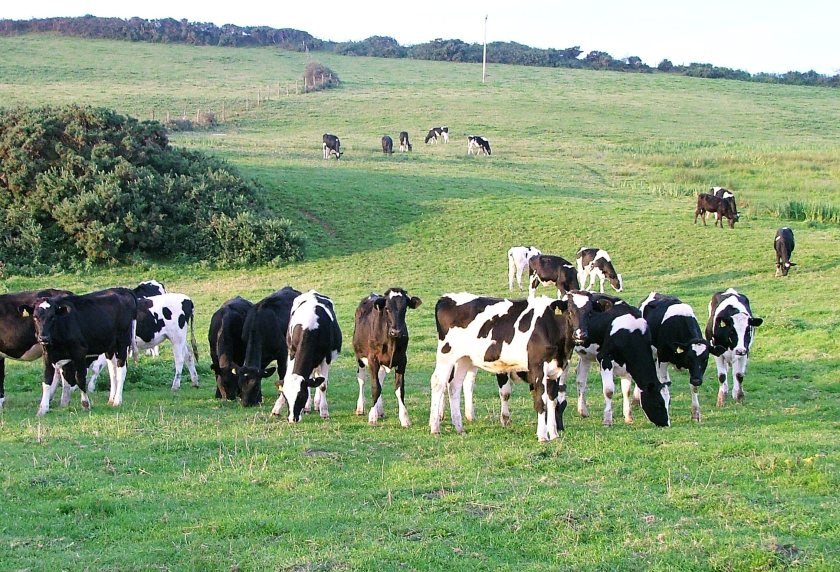
Welsh dairy farmers are warning of a “perfect storm” of pressures — from extreme weather to plunging milk prices — as a wave of economic, environmental and policy challenges threatens the sector’s stability.
Speaking ahead of the Welsh Dairy Show, NFU Cymru said that a combination of weather extremes, regulatory demands, animal disease threats and financial uncertainty has left many farm businesses under intense strain.
The union warned that the cumulative impact of these pressures — including one of the driest summers on record, looming changes to the Basic Payment Scheme (BPS), tougher water quality rules, and proposed inheritance tax reforms — has created serious short-term risks for the industry.
The Sustainable Farming Scheme (SFS), which will replace the BPS from January 2026, links future support to environmental and productivity measures — marking a major shift in how farm payments are delivered in Wales.
NFU Cymru Dairy Board Chair Jonathan Wilkinson said farmers were juggling an unprecedented number of competing pressures. “Rarely have Welsh dairy farmers had to juggle so many varied and competing issues at once,” he said.
“The prolonged hot, dry summer – one of the driest on record – has resulted in very variable forage yields which, in turn, has left many in our industry having to source feed far earlier in the calendar than they may have done in the past.”
He said rising feed costs and the “spectre of huge potential inheritance tax bills” were compounding financial pressures, alongside recent drops in farmgate milk prices of up to 18%.
“These issues alone are enough to have dairy farmers looking at the balance sheet with a large degree of concern,” Wilkinson added.
Wilkinson also warned that animal disease threats continue to create uncertainty, with the risk of Bluetongue alongside the ongoing challenge of bovine TB, which he said “routinely wreaks havoc on hundreds of Welsh farming businesses every year.”
He described the Control of Agricultural Pollution regulations as another major obstacle, with many farmers “having to do mathematical gymnastics” to comply with stocking limits and absorb “eye-watering” infrastructure costs. “The stress of inspections should not be underestimated, either,” he added.
Wilkinson said that the recent fall in milk prices would also serve as the first major test of the Fair Dealing Obligations in the Dairy Sector (FDOM) regulations, introduced earlier this year following sustained NFU Cymru lobbying for greater transparency and fairness in supply contracts.
“We will be monitoring how milk buyers are complying with them and raising any concerns with the adjudicator,” he said.
Despite the challenges, Wilkinson said there were reasons to remain optimistic in the long term. “Combined, these sizeable threats and fears are enough to worry even the most positive of dairy farmers,” he said. “However, in the short term, Welsh dairy farmers are steeling themselves for a challenging winter.
"I just hope that these family businesses can weather the immediate storm in order to take advantage of the potential benefits and better times on the horizon.”
NFU Cymru has urged the Welsh and UK governments to take practical action to stabilise the sector and restore confidence. The union is calling for a long-term funding commitment to the universal layer of the Sustainable Farming Scheme, ensuring the scheme evolves to deliver genuine benefits for dairy producers.
It has also reiterated the need for a science-led approach to water quality regulation, arguing that “farming by calendar” does not reflect real-world conditions or environmental outcomes.
NFU Cymru has further called for increased public procurement of Welsh dairy products, encouraging the use of locally produced milk, cheese and cream in schools, hospitals and public institutions.
Finally, the union urged policymakers and levy bodies to maximise opportunities for dairy exports, capitalising on international demand for Welsh produce to boost market resilience and farmgate returns.
“Above all else, we hope that consumers continue to support our dairy farmers by buying Welsh dairy produce wherever it’s available,” Wilkinson said.
With the Welsh Dairy Show providing a platform for discussion, NFU Cymru hopes policymakers and processors will act quickly to steady the sector — helping Welsh dairy businesses navigate a turbulent winter and emerge stronger for 2026.
